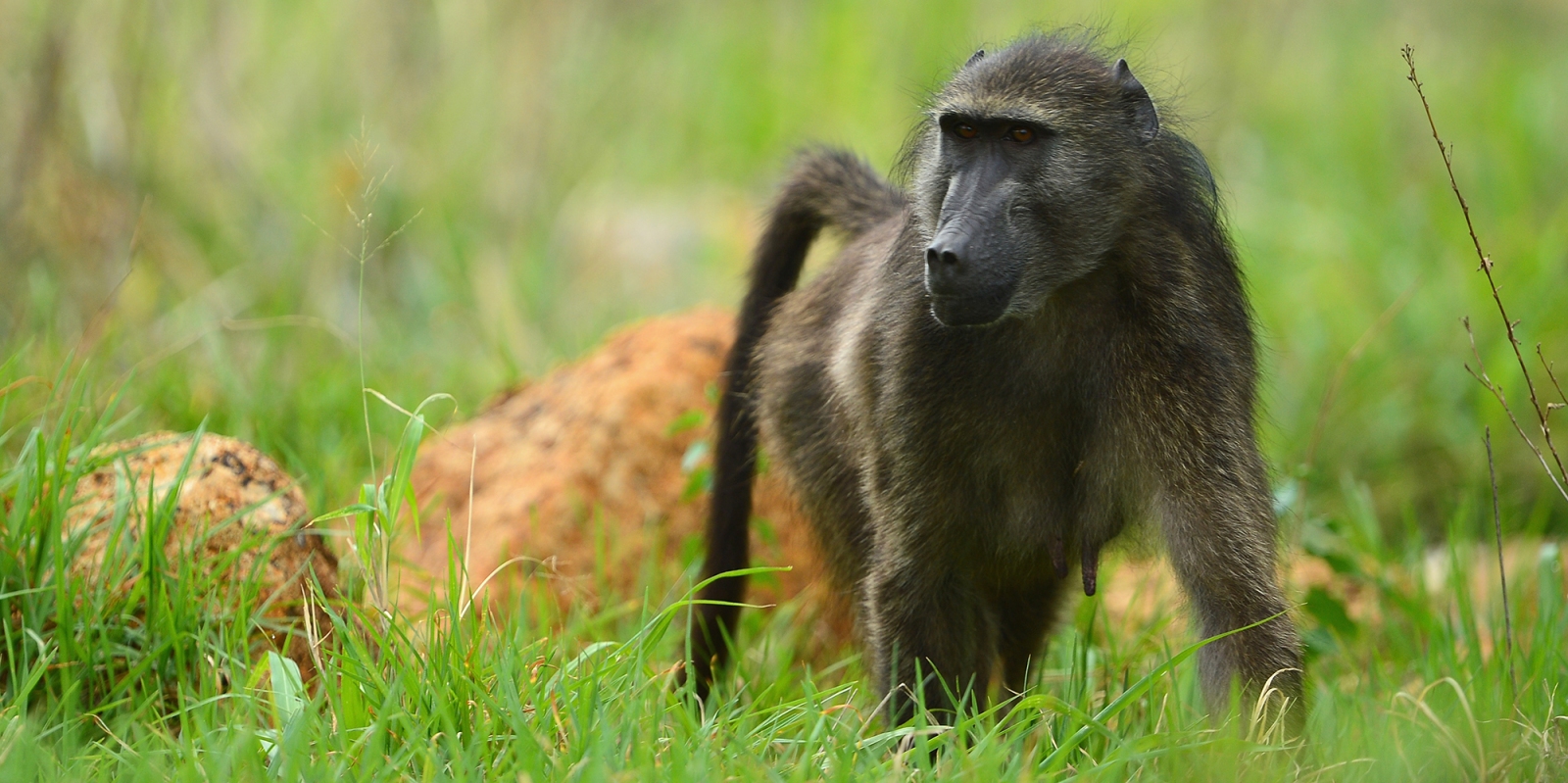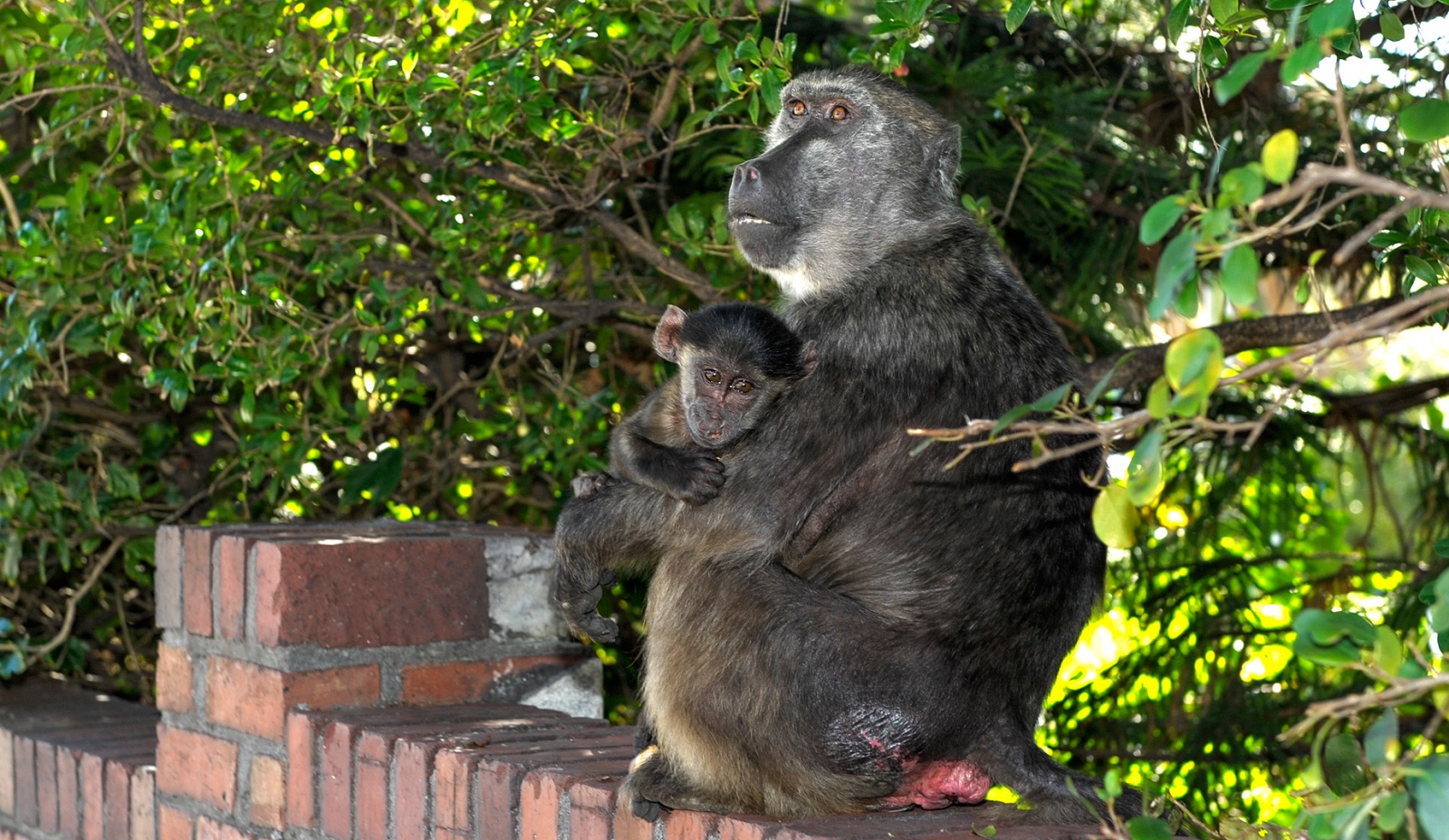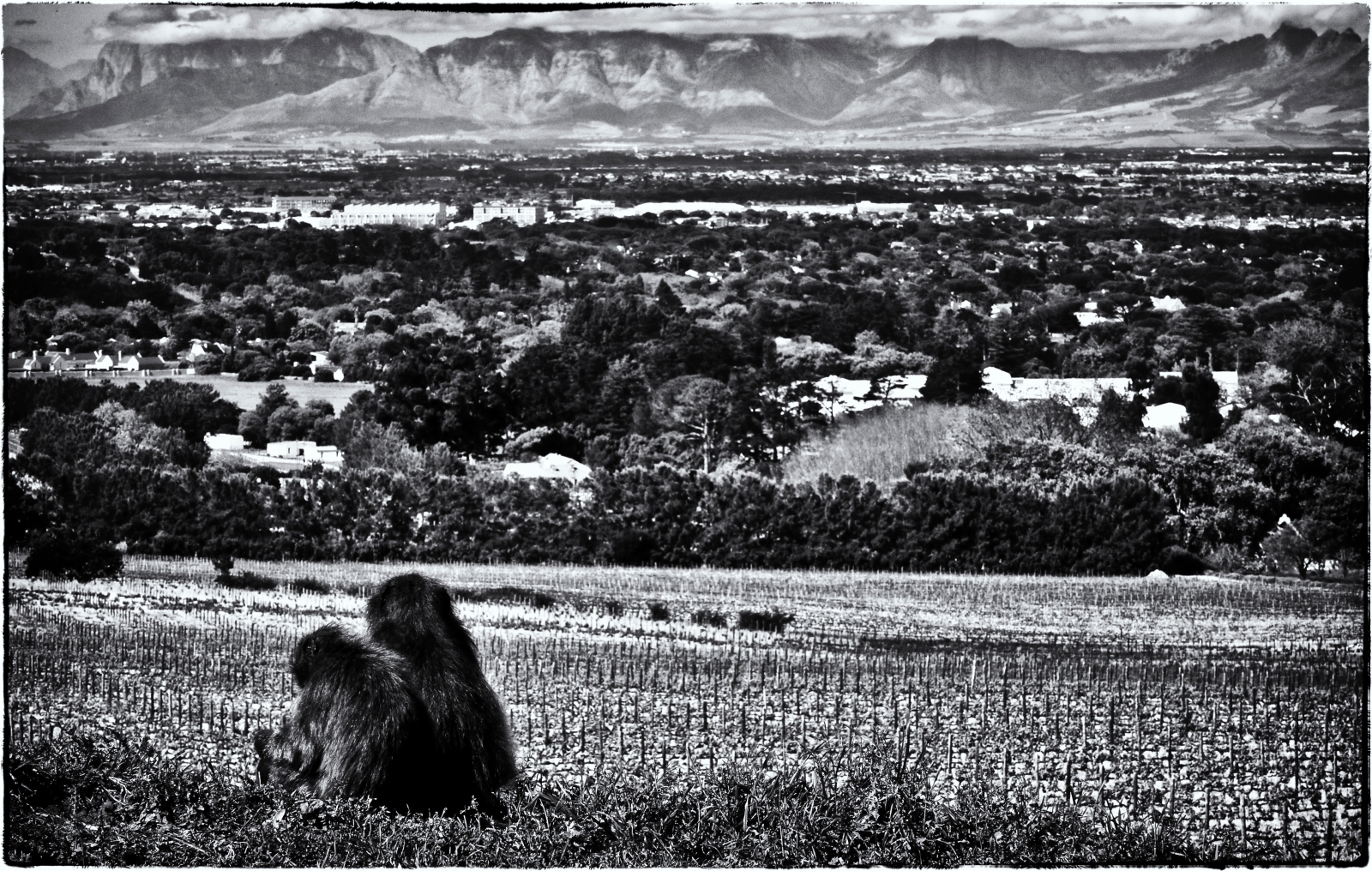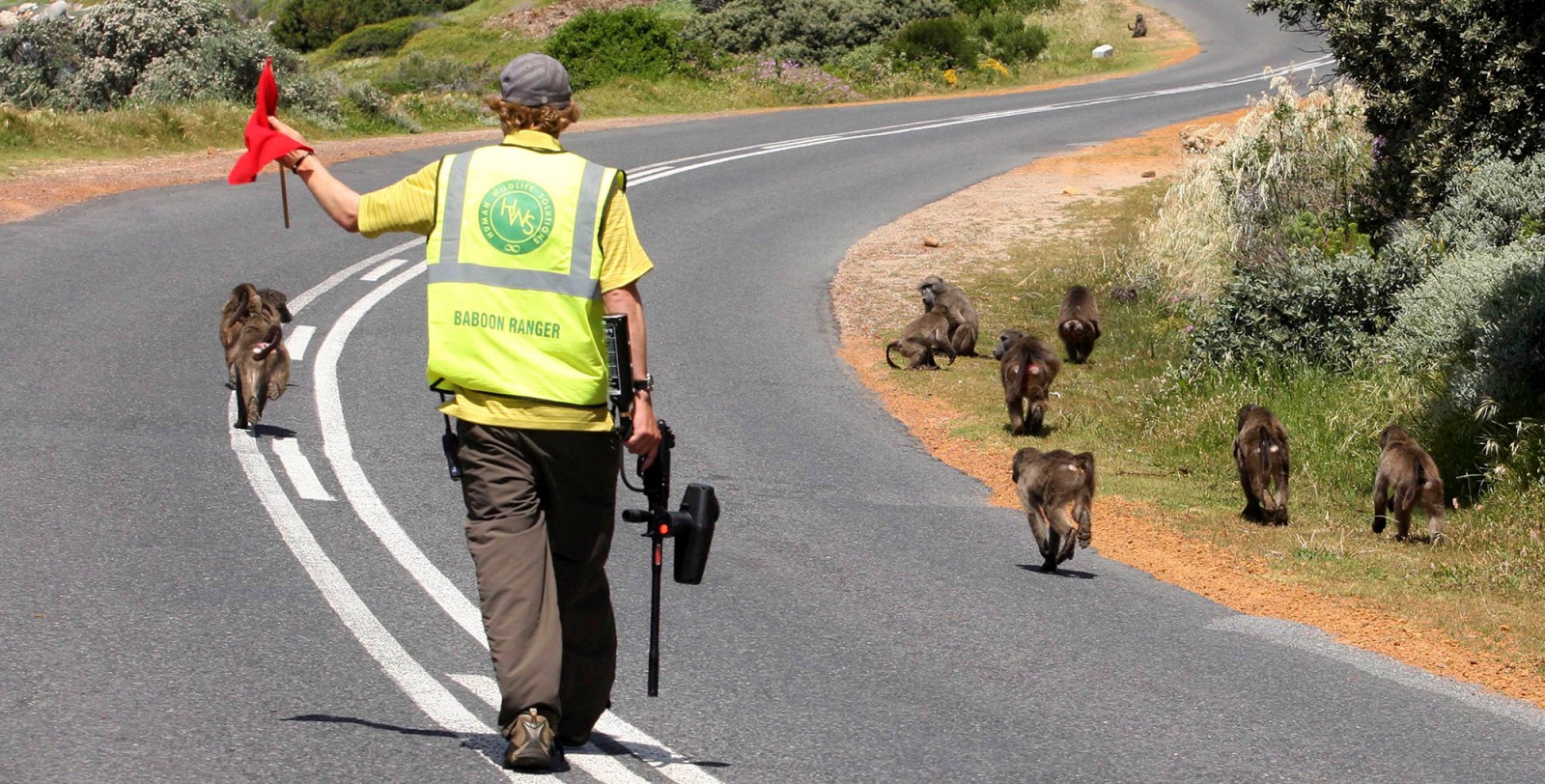Monkey Business (Part 2)
Who is responsible for the management of baboons on the Cape Peninsula?
Bolo, a baboon from the Simon’s Town Waterfall Troop was killed in July, despite recovering from an injury after treatment by the SPCA. The killing prompted several questions. Who takes the decision to formally kill or euthanise, as the authorities refer to it, a baboon causing ‘trouble’ and are there any scientific criteria to determine when and how a baboon should be killed? It seems that not a single entity is taking full responsibility.
It seems that as part of the “Baboon Management Plan” there is a checklist of “offences”, such as entering homes, cars and raiding rubbish bins. Too many offences on a sheet, and it is the end of the road for the baboon.
Does the City of Cape Town Have a Baboon Management Plan?
When the City of Cape Town was asked to provide the scientific criteria for making such a decision, it only provided the link to its protocols and guidelines.
The service providers, Human Wildlife Solutions (HWS), first agreed to discuss the issue, but later did not respond to questions sent by email, and NCC Environmental Services said all media enquiries had to go through its client, the City.
He said, she said. Who makes the decision?
According to CapeNature it is the City of Cape Town and its service providers who make the decision:
“The City of Cape Town and its service provider, NCC, are authorised under a permit issued by CapeNature in terms of the Nature Conservation Ordinance, to conduct restricted activities pertaining to the management of wild animals, including the capture, holding, relocation and euthanasia of baboons identified as habitual raiders. The permit allows them to make decisions in this regard without consulting CapeNature.
“The current operational guidelines are used by the service provider to track and record the movement, behaviour and activities of any baboon identified as potentially becoming a habitual raider putting itself or the troop at risk.
“A case study is put together by the service provider after evaluating its behaviour over an extended period. If according to the guideline criteria its behaviour has become irreversible, the animal is identified as a candidate for euthanasia. This case study and the completed BTTG03 form are submitted to the Biodiversity Branch of the City who has the authority to take a final decision under the auspices of the permit issued by CapeNature.”
The City’s response was, according to Marian Nieuwoudt, the mayoral committee member for spatial planning and environment: “Yes, CapeNature’s response complies with the permitted system, but in a recent press statement the City noted that in this interim period all decisions would be diverted to CapeNature. Therefore, in the case of WF7 (Bolo), CapeNature made the decision.”
However, she said: “The guideline available shows the decision-making elements. The final decision rests with CapeNature, the authority that issues the permits.”
Confusing.
No Case Study Provided
Both were asked to provide the specific case study. However, the City and CapeNature said they were sticking to what was in the press statement.
According to South African National Parks (SANParks), which manages Table Mountain National Park, it has “no jurisdiction to manage baboons or any other species outside the boundaries of the national park”. SANParks’ mandate was specifically focused on the management of national parks. When asked about the baboons inside its parks, Babalwa Dlangamandla, the spokesperson, did not respond.
But what is the actual baboon management plan? The City of Cape Town was asked to provide such a plan on which all role players have had a chance to give input.
“The overall baboon management plan/strategy is not a mandate of the City. The City is just one role player and does not have a conservation mandate in relation to the Cape Peninsula baboons. This plan must be led by CapeNature and SANParks. Draft plans/strategies are available and there has been public engagement in 2013/14. These plans have not yet been approved,” said Nieuwoudt.
But if it is not a mandate of the City, how does it have the knowledge to provide service providers to manage the baboon troops, Daily Maverick asked again.
Baboon Management in the Cape Peninsula is Complex
Nieuwoudt’s response this time:
“The governance of baboon management in the Cape Peninsula is complex, involving CapeNature, SANParks and the City. No formal agreement exists and has been the subject of many discussions and a court case. CapeNature has committed to lead a process to finalise an agreement between the authorities. In addition, the SPCA plays a pivotal role in terms of animal welfare.
“The objective of the Urban Baboon Programme, run by the City, is to keep baboons out of the urban areas. The decisions for the Urban Baboon Programme are contained in the guidelines and permit conditions as approved by CapeNature. These guidelines are best practice for managing baboon-human conflict and are based on science and have proven to be very successful in the field.”
What About Baboon-Proof Bins?
No bins?
One of the serious complaints is that the City does not provide baboon-proof bins, and the previous ones were easily manipulated by the animals.
Professor Darby Proctor, from the Florida Institute of Technology, who does research on decision-making in non-human primates, also did the same fieldwork with the baboons in 2008. She said about the lack of bins: “I think that is a shame. While I understand that providing those bins would be an expense, I think it would be worth it to help preserve your natural resources – in this case, the Cape baboons. This is also one of the easiest solutions to help mitigate human-wildlife conflict.
“Providing baboon-proof bins would by no means solve all the issues, but I suspect it would help significantly. The baboons are likely around human settlements because of the easily accessible food. Making food less accessible may encourage them to find more natural sources of food.
“Education is definitely part of the solution. People need to know what they can do to prevent human-wildlife conflict and what to do should they encounter problematic wildlife. People also need to understand how important it is to preserve this population of baboons. They are a treasure for the Cape,” she said.
Jenni Trethowan, from the Baboon Matters Trust, has been involved with the baboons for 25 years. “The most basic requirements are effective bins, those in use do not work effectively. It’s a people problem.”
Xanthea Limberg, the City’s mayoral committee member for water and waste, said: “New-design lockable bins for households are subject to a tender process and will be issued in areas adjacent to baboon troops’ natural habitat from 1 October 2021, if all goes as planned, once due process has been finalised. In the Simon’s Town area, there are new brown polywood, baboon-resistant bins between the station and the magistrates’ court. These polywood bins have also been installed in Scarborough.” DM/OBP
Read Monkey Business Part 1 here and Part 3 here
This article first appeared on Daily Maverick and is republished here under a Creative Commons license.









2 thoughts on “Baboon Management Plan”